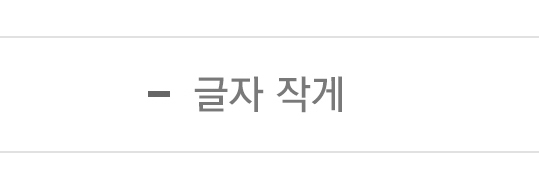
| 일터에 등장하는 Z세대, 그들과 함께 일하는 법 | ||||
| 베이비붐 세대와 X세대에 이어 밀레니엄 세대가 직업 전선에 뛰어 들었고,... |


  |
 |  |
베이비붐 세대와 X세대에 이어 밀레니엄 세대가 직업 전선에 뛰어 들었고, 이제는 Z세대가 등장하고 있다. 과거 세대 사이의 격차에 비해 이 새로운 세대와 이전 세대들과의 격차는 더욱 넓어 보인다. Z세대는 어떻게 정의될 수 있으며 기성세대와는 무엇이 다른가? 과연 무리 없이 기성세대와 융합할 수 있을까? 새롭게 직업 전선에 합류한 Z세대에게서 가장 가치 있는 결과를 이끌어낼 방법은 무엇인가?
‘Z세대Generation Z’는 1990년대 후반부터 2000년대 중반 사이에 태어난 이들을 가리키며, 현재 미국 인구의 25% 가량을 차지하고 있다. 미 인구조사국U.S. Census Bureau에 따르면 Z세대의 인구는 밀레니엄 세대나 베이비붐 세대보다 더 많다.
상위 연령대의 Z세대들이 이제 노동인구에 편입되기 시작했다. 2020년대 초반에는 이들이 전체 노동인구의 1/5을 차지할 전망이다. 그 다음 10년 동안은 이들보다 젊은 Z세대가 뒤를 이어 6,000만 명의 Z세대가 구세대와 함께 일하게 될 것이다.
바로 앞선 세대인 밀레니엄 세대와 Z세대는 이렇게 다르다.
▶ Z세대는 디지털 기술과 함께 성장했다. 인터넷과 소셜 미디어, 스마트폰이 없는 세상을 이들은 상상조차도 할 수 없다.
▶ Z세대는 부모에게 경력에 대한 조언자 역할을 기대하고 의지한다. 컨설팅 회사 로버트 하프Robert Half의 설문조사 결과 Z세대의 82%는 부모가 자신의 경력을 선택하는 데 도움을 줄 것이라고 생각하고 있었다. 컨설팅 회사 레인메이커 씽킹Rainmaker Thinking의 창업자 브루스 툴간Bruce Tulgan에 따르면, “이들은 역사상 그 어떤 세대보다 더 많은 지도와 지원, 코칭을 부모와 교사, 상담사로부터 받은 세대다.”
▶ 이렇게 자신을 지원해 주는 네트워크가 강력하기 때문에 Z세대는 또한 인간관계를 중요시한다. 온라인을 통해 일하는 것을 이전 세대보다 편히 생각하면서도, 한편으로는 상사와의 직접 면담도 선호한다. 컨설팅 전문기관 밀레니얼 브랜딩Millennial Branding과 인력 회사 랜드스타드Randstad US의 조사는 Z세대의 53%가 문자나 영상 도구보다는 대면 소통을 선택한다는 점을 밝혀냈다.
▶ 로버트 하프의 설문조사에 의하면 Z세대의 2/3가 오피스 환경에서 작은 단위 그룹의 동료들과 협업하길 원한다. 미국의 전반적인 트렌드가 재택근무를 선호하는 쪽으로 움직인다는 점을 고려하면, Z세대 중에서는 단 4%만이 외딴 장소에서 독립적으로 일하는 것을 선호한다는 건 특이한 현상이다.
▶ 인력 리서치 업체 유니버섬Universum의 연구에 따르면 Z세대의 절반 이상이 자기 사업을 시작하고자 하는데, 이는 밀레니엄 세대보다도 더 높은 수치다.
▶ Z세대는 작업 장소를 옮기면서 일하는 걸 즐기는데, 홀로 일할 때는 조용한 장소, 동료들과 협업할 때는 열린 장소로 이동하려고 한다. 또한 사회활동을 할 때는 인터넷 연결이 가능한 야외를 선호한다.
▶ Z세대는 한 회사에서 오랜 경력을 쌓는 것을 중요하게 여기지 않는다. 취업 정보 회사 아데코 스태핑Adecco Staffing USA가 주관한 연구에 따르면 Z세대의 83%는 첫 취업한 회사에서 3년 이하의 기간 동안 머물 계획을 가지고 있는 것으로 나타났다. 한편 그 기간이 1년 이하인 Z세대도 27%나 됐다. 로버트 하프의 설문조사에 따르면 Z세대는 보통 총 직장 생활 동안 4개의 회사를 다닐 것이라 생각하는 것으로 드러났다.
▶ Z세대의 50%는 60세 이전에 은퇴하길 원하지만, 50% 이상은 61∼70세 사이에도 일할 필요가 있을 것으로 그들 스스로 예상하고 있다. 이들 2/3 이상이 자신들은 그 이전 세대보다 더 열심히 일해야 할 것이라고 생각하는데, 경제적으로 불확실한 시대에 성장한 세대라서 재무 안전성을 우선순위에 두는 듯하다.
▶ 밀레니엄 세대와는 달리, Z세대는 상사들이 자신들의 제안과 아이디어에 관심을 표하기를 적극적으로 바란다.
▶ Z세대의 약 40%는 자신의 개성을 표출할 직업을 얻지 못할 수도 있다는 두려움을 갖고 있다.
▶ Z세대의 3/4 이상은 그들 고용주가 ‘옳은 일’에 집중해야 한다고 믿는다. 45%는 세상을 좀 더 나은 곳으로 만드는 데 일조하는 회사에서 일하는 것이 급여를 받는 것만큼 중요하다고 말한다.
▶ Z세대가 직업을 선택할 때 가장 중요하게 여기는 요소들은 다음과 같다. 직업적 기회(64%), 넉넉한 연봉(44%), 사회에 끼치는 긍정적 영향(40%), 직업 안정성(38%). 짧은 통근거리(6%), 그럴듯한 직책(3%). 넉넉한 연봉이 2위였는데, 로버트 하프의 조사에 따르면 대학 졸업 후 입사 1년차에 기대하는 연봉은 평균 4만 6,799달러였다. 약 80%가 국제적 대기업이나 중견 규모 이상의 기업을 선호했다.
▶ Z세대와 함께 일을 할 때, 관리자들은 이 세대가 훌륭한 상사의 덕목 중 가장 중요한 점으로 정직함(38%)을 꼽는다는 사실을 인지해야 할 것이다. 그 다음은 멘토링 능력(21%), 열정(18%)이다.
▶ Z세대는 밀레니엄 세대 혹은 Y세대와 함께 일하는 것에 거부감이 없다. 절반 이상이 그 협업이 ‘수월’할 것이라고 믿는다. ‘대체로 수월할 것’까지 포함하면 79%나 된다. 그러나 베이비붐 세대와 일하는 것이 ‘수월’할 것이라고 생각하는 비율은 27%에 불과했고, 45%가 ‘매우 어려울 것’ 또는 ‘약간 어려울 것’이라 걱정했다. 로버트 하프의 조사에 따르면 그 이유는 베이비붐 세대가 자신들이 너무 어리다는 이유로 아이디어를 받아들이지 않을까 두려워하기 때문인 것으로 드러났다.
▶ <포브스>에 보도된 바에 따르면, 부모보다 자신들의 생활수준이 더 나아질 것이라고 생각하는 Z세대는 56%에 불과했다. 반면 밀레니엄 세대는 그 수치가 71%에 달했다.
이러한 Z세대에 대한 사실을 근거로, 우리는 다음과 같은 예측을 내려본다.
첫째, Z세대에 대한 고용 투자에서 성공하려면, 고용주들은 이직 방지에 집중해야 할 것이다.
앞서 언급됐듯이 Z세대의 87%가 첫 직장에서 3년 이하, 27%가 약 1년 정도의 근무를 예상하고 있다. 연구결과 한 명의 밀레니엄 세대 직원을 교체하는 데 드는 기회비용이 연 2만 달러 정도였는데, 그들보다 근무기간이 짧을 것으로 예상되는 Z세대의 경우는 더 늘어날 것이다. 이 기회비용은 신규 직원을 채용하고 교육시키는 데 드는 비용을 말한다.
둘째, Z세대의 고용 유지 기간을 늘리려면, 이전 세대에 속하는 관리자들은 그들 리더십 스타일을 Z세대에 맞춰야 할 것이다.
직업 세계에 새로 진입한 이들 세대의 증언에 기반해, 로버트 하프의 보고서는 Z세대와 함께하기 위한 5가지 가이드라인을 내놓았다.
1. 나이에 상관없이 그들을 존중하고, 그들의 제안과 의견을 가치 있게 생각한다는 점을 보여줘라.
2. 가장 최신의 디지털 기술에 익숙해져라.
3. 이메일보다 직접 대면하여 의사소통하라.
4. 지속적으로 피드백을 주고 지원하라.
5. 정직하게 말하고 진정성 있게 대하라.
셋째, Z세대 직원의 생산성을 최대화하려면 고용주는 그 직원들의 능력에서 부족한 부분을 채워주는 교육을 제공해야 할 것이다.
Z세대가 전형적으로 부족한 분야는 ‘글쓰기’다. 약어와 이모티콘을 사용해 문자를 전송하며 성장했기 때문에, Z세대의 상당수는 업무상에서 효과적으로 소통하는 데 필요한 글쓰기 능력이 떨어진다. 일반적으로 글쓰기에는 능숙하지만 새로운 기술을 학습하는 속도는 떨어지는 베이비붐 세대와 달리, Z세대는 새로운 디지털 도구에 익숙해지는 속도는 빠르지만 기본적 커뮤니케이션 능력을 학습하는 속도는 느린 편이다. 따라서 기업은 개방형 온라인 강좌나 전문가를 통해 Z세대 직원들에게 글쓰기 교육을 시행할 필요가 있을 것이다. 또한 브루스 툴간에 따르면, Z세대는 다음의 5가지 핵심 능력을 갖추지 못하고 직업에 뛰어들 것이라서 고용주들은 이에 대해 교육시킬 필요가 있다.
1. 자신의 업무 성과를 평가하는 법
2. 행동에 대한 주인의식을 가지는 법
3. 긍정적 태도를 유지하는 법
4. 업무에 영향을 줄 수 있는 개인적 오락 활동을 제거하는 법
5. 일정을 관리하고 생산적으로 일하는 방법을 익혀 효율성을 높이는 법
넷째, 기업은 창업의 꿈을 가진 Z세대에게 직장 경험을 제공해야 할 필요가 있다.
아데코 스태핑의 연구에 따르면 Z세대는 유연한 근무 스케줄을 직장에서 얻을 수 있는 핵심적인 이점 중 하나로 여긴다. 그들은 또한 아이디어를 제공하고 최신 디지털 기술을 활용하며, 동료들과 협업할 수 있는 기회를 원하고 있다.
다섯째, 고용주들은 건강한 생활 방식을 유지하려는 Z세대의 노력을 지원하는 환경을 제공해야 한다.
닐슨Nielsen의 연구에 따르면, Z세대의 40%는 회사 식당에서 영양이 풍부하면서도 건강한 메뉴를 제공받길 원한다. 그런 조건을 만족시키는 식품을 얻을 수 있다면 더 많은 돈을 기꺼이 지불하려는 Z세대들은 더 많다. 밀레니얼 브랜딩과 랜드스타드의 연구에 따르면, Z세대 노동자의 40%는 고용주가 직원들에게 건강 프로그램을 제공해야 한다고 생각하는 것으로 나타났다. 식사 품질과 직원 건강을 향상시키기 위한 약간의 투자만으로도 기업들은 이직 방지와 생산성 향상이라는 이익을 거둘 수 있을 것이다.
* *
References List :
1. For information about the uniqueness that is Generation Z, visit the BMC Software website at:
http://dsm.bmc.com/the-digital-natives-how-to-get-ready-for-gen-z-workers/
2. To access the Robert Half survey “Get Ready for Generation Z”, visit his website at:
https://www.roberthalf.com/accountemps/blog/are-you-ready-to-manage-generation-z
3. Gen Y and Gen Z Global Workplace Expectations Study, September 2, 2014, “Millennial Branding and Randstad U.S. Release First Worldwide Study Comparing Gen Y and Gen Z Workplace Expectations,” by Dan Schawbel. ⓒ 2014 Millennial Branding. All rights reserved.
http://millennialbranding.com/2014/geny-genz-global-workplace-expectations-study/
4. To learn more about the Generation Z’s entrepreneurial attitudes, visit the Universum website at:
http://universumglobal.com/articles/2015/10/gen-zs-attitudes-future-careers/
5. Forbes, November 6, 2015, “7 Things Employers Should Know about the Gen Z Workforce,” by Kathryn Dill. ⓒ 2015 Forbes Media LLC. All rights reserved.
http://www.forbes.com/sites/kathryndill/2015/11/06/7-things-employers-should-know-about-the-gen-z-workforce/-53d0c1f22188
6. Bridging the Soft Skills Gap: How to Teach the Missing Basics to Today’s Young Talent by Bruce Tulgan is published by John Wiley & Sons, Inc. ⓒ Bruce Tulgan. All rights reserved.
 |  |
 |
Get Ready for Gen Z Workers
Generation Z consists of the 25 percent of the American population that was born beginning in the late 1990s to the middle of the following decade. According to the U.S. Census Bureau, Gen Z is larger than the Millennial or the Baby Boom generation.
The oldest members of Gen Z are beginning to enter the workplace. By early 2020s, they’ll account for one-fifth of the workforce. They will be followed by younger members of their generation for the next ten years, until 60 million Gen Z workers will be working beside members of older generations.
Gen Z is unlike the Millennial generation that preceded them in important ways:1
- Members of Gen Z grew up with digital technology. They can’t remember a world without the Internet, social media, or smartphones.
- Gen Z expects to continue to rely on parents for career advice. A Robert Half survey found that 82 percent expect their parents to help them choose a career.2 According to Bruce Tulgan, founder of Rainmaker Thinking, “This is the generation that’s had more guidance, direction, support, and coaching from parents, teachers, and counselors than any generation in history.”
- Perhaps because of that strong support network, Gen Z also emphasizes the importance of human contact. While they are more comfortable learning how to do their jobs from online tutorials than previous generations, they prefer face-to-face mentoring from their bosses. Research by Millennial Branding and Randstad US found that 53 percent of Gen Z workers would rather communicate in-person than through text messages or videoconferencing tools.3
- Almost two-thirds of Gen Z wants to collaborate with a small group of co-workers in an office environment, according to the Robert Half study. Counter to the larger U.S. trend toward employees working from home, only 4 percent of Gen Z workers prefer to work independently at an off-site location.
- More than half of Gen Z members say they want to start their own businesses, according to a study by Universum.4 That’s a higher proportion than Millennials.
- They also want the ability to move from one work zone to another, from a quiet area where they can concentrate while working solo to open spaces elsewhere in the building where they can collaborate with colleagues, and perhaps an area outside the building where they can socialize, all without losing their Internet connection.
- Gen Z isn’t interested in a long-term career at a single company. A study by Adecco Staffing USA found that that 83 percent plan to stay at their first job for three years or less, while 27 percent intend to stay no more than one year. A Robert Half survey found that they expect to work for four companies during their careers.
- While half of Gen Z would prefer to retire before the age of sixty, more than half expect to need to work until they’re between the ages of sixty-one and seventy. More than three-quarters of Gen Z workers anticipate that they will have to work harder than members of previous generations. Because they came of age during an era of economic uncertainty, financial security ranks as a high priority for them.
- Unlike Millennials, Gen Z is more interested in having managers pay attention to their suggestions and ideas.
- Almost 40 percent are afraid they won’t be able to get a job that allows them to express their personality in the workplace.
- More than three-quarters of Gen Z believe that their employers should focus on “doing good,” and 45 percent say that working for a company that helps make the world a better place is just as important as the salary it pays.
- Gen Z ranks the following factors as the most important in choosing a job: career opportunities (64 percent); generous salary (44 percent); making a positive impact on society (40 percent); and job security (38 percent). Only 6 percent care about a short commute, while a mere 3 percent would be tempted by a prestigious job title. While a generous salary ranks second, they only expect to earn an average of $46,799 in their first year after college, according to the Robert Half survey. About 80 percent would prefer to work for either a large international corporation or a mid-sized company.
- When it comes to working with Gen Z, managers will need to be aware that this generation ranks honesty (38 percent), as the most important characteristic of a good boss, followed by mentoring ability (21 percent), and passion (18 percent).
- Gen Z isn’t worried about working with the generation that preceded them, known as the Millennials or Generation Y. More than half believe that it will be easy, and when those who expect it to be “somewhat easy” are included, the percentage rises to 79 percent. However, only 27 percent think it will be easy to work with Boomers, and 45 percent worry that it will be “very difficult” or “somewhat difficult.” The primary reason, according to the Robert Half survey, is that Gen Z fears that Boomers won’t take them or their ideas seriously because of their youth.
- According to a study reported in Forbes, only 56 percent of Gen Z expects to attain a better standard of living than their parents, compared to 71 percent of Millennials.5
Based on these findings, we offer the following forecasts:
First, employers must focus on retention in order to make their investment in hiring Gen Z workers pay off.
As noted earlier, 83 percent of Gen Z workers plan to stay at their first job for three years or less, while 27 percent intend to stay no more than one year. Researchers have found that it costs as much as $20,000 to replace a Millennial worker, so the faster turnover of a Gen Z workforce would increase the costs of recruiting and training a constant stream of new employees.
Second, managers from older generations will need to customize their leadership style in order to increase the retention of Gen Z workers.
Based on what the members of the new generation entering the workforce have told researchers, the Robert Half report recommends five guidelines for connecting with Gen Z:
1. Demonstrate that you respect them despite their youth and that you value their suggestions and opinions.
2. Keep current on the newest digital technologies.
3. Make sure that you communicate with them in person, rather than through email.
4. Provide continuous feedback and support.
5. Speak honestly and act with integrity.
Third, to maximize the productivity of Gen Z workers, employers will have to provide training to help them overcome the weaknesses in their skill sets.
One area that needs remediation is writing. Because they’ve grown up using abbreviations and emoticons to send text messages, many young workers haven’t mastered the skills they will need to communicate effectively in a professional setting. Unlike Boomers, who are generally adept at writing and slow to learn new technologies, Gen Z is quick to grasp new digital tools but still far behind in learning basic communication skills. Companies will need to bring in professors to teach writing skills, while using MOOCs for additional lessons. Also, Gen Z will enter the workforce without five key “soft skills,” according to Bruce Tulgan, author of Bridging the Soft Skills Gap.6 Employers will need to teach Gen Z employees how to:
- Evaluate their own performance.
- Take ownership of their actions.
- Maintain a positive attitude.
- Eliminate distractions in their personal lives that can affect their work.
- Increase their effectiveness and efficiency by learning how to organize their schedules and work at peak productivity.
Fourth, companies will need to give Gen Z workers the type of workplace experience they would gain if they pursued their dream of starting their own businesses.
The Adecco Staffing study found that Gen Z considers flexible work schedules one of the key benefits they seek in a job. They also want opportunities to contribute their ideas, use the latest digital technologies, and collaborate with colleagues.
Fifth, employers must provide an environment that supports Gen Z workers’ efforts to maintain a healthy lifestyle.
Research by Nielsen found that 40 percent of Gen Z wants their employers’ cafeteria menus to offer food that is nutritious as well as derived from a sustainable source. An even larger percentage of Gen Z is willing to pay more money for food that meets those requirements. Studies by Millennial Branding and Randstad show that 40 percent of Gen Z workers want their employers to sponsor wellness programs. For a small investment toward improving the quality of the food and the heath of the workers, businesses can earn a high ROI through reduced turnover and greater productivity.
References
1. For information about the uniqueness that is Generation Z, visit the BMC Software website at:
http://dsm.bmc.com/the-digital-natives-how-to-get-ready-for-gen-z-workers/
2. To access the Robert Half survey “Get Ready for Generation Z”, visit his website at:
https://www.roberthalf.com/accountemps/blog/are-you-ready-to-manage-generation-z
3. Gen Y and Gen Z Global Workplace Expectations Study, September 2, 2014, “Millennial Branding and Randstad U.S. Release First Worldwide Study Comparing Gen Y and Gen Z Workplace Expectations,” by Dan Schawbel. ⓒ 2014 Millennial Branding. All rights reserved.
http://millennialbranding.com/2014/geny-genz-global-workplace-expectations-study/
4. To learn more about the Generation Z’s entrepreneurial attitudes, visit the Universum website at:
http://universumglobal.com/articles/2015/10/gen-zs-attitudes-future-careers/
5. Forbes, November 6, 2015, “7 Things Employers Should Know about the Gen Z Workforce,” by Kathryn Dill. ⓒ 2015 Forbes Media LLC. All rights reserved.
6. Bridging the Soft Skills Gap: How to Teach the Missing Basics to Today’s Young Talent by Bruce Tulgan is published by John Wiley & Sons, Inc. ⓒ Bruce Tulgan. All rights reserved.

.jpg)
.jpg)
.jpg)
